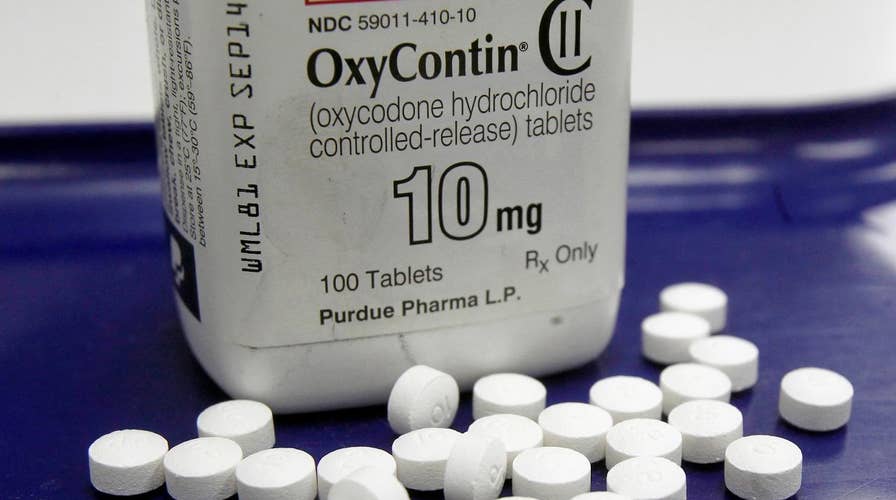Some Massachusetts state prisons began administering medication to treat opioid addiction in newly arriving inmates as part of a new law that took effect on Monday -- a groundbreaking new program to help combat the opioid crisis.
The Department of Corrections is administering one of the two medications required under the new multifaceted measure, placing Massachusetts ahead of most prisons and jails in the country that usually deny inmates access to similar drugs, The Boston Globe reported.
New inmates at four state prisons will be offered buprenorphine, also known as Suboxone, as a treatment for opioid addiction.
NEW YORK SUES MAKERS OF OXYCONTIN DAYS AFTER COMPANY AGREES TO $270M SETTLEMENT
The legislation mandates that the Department of Corrections provide buprenorphine and methadone to newly arriving inmates at two women’s prisons, MCI Framingham and the South Middlesex Correctional Center, and two facilities for the rehabilitation of male offenders, Massachusetts Alcohol and Substance Abuse Center and MCI Cedar Junction.
“It’s long overdue,” Dr. Christin Price, director of an addiction treatment clinic at Brigham and Women’s Hospital, told The Globe.
“It will address a lot of the racial inequalities in addiction treatment and prevent the high mortality after release."
Two-thirds of prisoners suffer from addiction, and they face an extremely high risk of fatal overdose upon release, The Globe said.
Some inmates have sued prisons around the country for failing to provide medication to allow them to treat their opioid addictions while incarcerated. Most recently, federal judges in Maine and Massachusetts ordered jails to provide medication to specific inmates.
Two of the three medications used to combat withdrawal pains, block drug cravings and prevent overdoses in patients struggling with addiction are controlled substances, leaving many prisons around the country hesitant to provide them.
CLICK HERE TO GET THE FOX NEWS APP
The Massachusetts Legislature allocated $2.2 million in the current fiscal year for the new program. The Department of Corrections employed the services of WellPath, a public health care company for underserved patients, to help manage the health of inmates and launch the medication program.
In the program’s first phase, prisoners already taking buprenorphine when they arrive will be allowed to continue to take the substance. Buprenorphine will also be used to treat painful withdrawal symptoms in inmates addicted to illicit opioids or methadone upon arrival. WellPath will work to help inmates recover from opioid addiction in the long term.
The Department of Corrections is still working on a way to administer methadone, which can only be deployed in addiction treatment by a federally certified clinic.









































